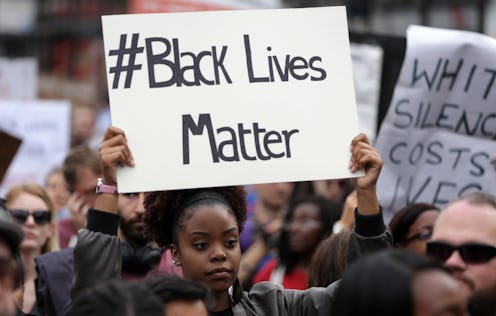On Tuesday night in Greenville, Mississippi, a Baptist church was set on fire and "Vote Trump" was emblazoned on the side in white paint in a predominantly African American community. This incident is an important and unfortunate reminder of the divisiveness and vitriol perpetrated by this election, a divisiveness which has justifiably made many people feel disenfranchised and fearful for their rights and lives.
The fire severely damaged the 111-year-old Hopewell Missionary Baptist Church in Greenville, Mississippi, but no injuries were reported in the incident. Investigative authorities suspect arson in the case and are now further investigating the incident as a hate crime due to both the status of the targeted institution (a church primarily attended by black parishioners) and the political nature of the message left on the church. Local police, the FBI, and the Mississippi Bureau of Investigation are all involved in the case. While no suspect has been named, the mayor of Greenville stated Wednesday that investigators have identified a "person of interest" in the case.
This incident is particularly jarring for a variety of reasons. Throughout American history, black churches have been targets of racist attacks intended to intimidate the black community and suppress their political involvement. According to PBS, in addition to serving as places of community and worship, black churches have also historically served as "central organizing forces for political activity, from protests to marches, and voter registration drives," and "as a result ... have often been targeted to suppress black participation in the political process."
Unfortunately, the burning of the Hopewell Missionary Baptist is the latest attack in a litany of historical attacks on African American religious institutions. For example, both the bombing of the 16th Street Church in Alabama in 1963, in which four girls were killed, and the shooting at the Emanuel African Methodist Episcopal Church in South Carolina last year, in which nine people were killed, resonate in national memory as particularly egregious incidents of attacks on black churches.
However, these attacks and the Greenville, Mississippi, attack are regrettably just a few examples of the dozens of attacks on black churches in the U.S. that have occurred since the mid-1900s, which were intended to threaten and intimidate black communities and voters and make them fearful of exercising and advocating for their rights.
The Hopewell Missionary Baptist arson is yet another example of the many ways in which both rhetoric and actions have been used throughout this election cycle to try to prevent voters of color from making their voice heard. Republican presidential candidate Donald Trump and some of his supporters' racist rhetoric and vitriol have created an environment where some people likely feel threatened by his candidacy.
The burning of Hopewell Missionary Baptist is a distressing visual symbol of the way African Americans and many other people of color have been treated throughout the cycle of this election and the history of this country.
The fact that black churches are still being burned in 2016 and that people are actively trying to keep voters of color away from the polls very aptly illustrate the absolute importance and urgency of voting in this election. Mississippi congressman Bennie Thompson aptly reflected this sentiment following the tragedy, urging "all citizens not to be deterred by this cowardly act and exercise your right to vote at the ballot box," a poignant reminder of the power of votes and voices to eradicate hate.
